MediaPurgatory.com is a participant in the Amazon Services LLC Associates Program. As an Amazon Associate, this site earns from qualifying purchases. This site also participates in other affiliate programs and is compensated for referring traffic and business to these companies.
I’m aware that this is a very unpopular opinion and that the majority of you love Tarantino and his movies. However, you can never please everybody, and among 8 billion people there has to be that one guy who just simply doesn’t get what all the hype is about. That one person happens to be me.
Being a huge movie fan, it was only a matter of time before I came across Tarantino’s films because they are always nominated for awards, appear in every “best-of” list, and are adored by professional movie critics. So, even if you are mildly interested in contemporary cinema, Quentin Tarantino is one of the first names that you are going to come across. There is simply no escaping the guy.
There is no shortage of praise and admiration for Tarantino’s movies in the mainstream press and online, so consider this article a necessary counterbalance. We are going to go through all of his movies—one by one—and point out everything wrong with them.
But, before we begin, I must warn you that if you love Tarantino’s movies, but cannot tolerate a different opinion on the matter, you should stop reading right now! I have almost nothing nice to say about his films and is very likely that you are going to get angrier and angrier as you read on, and that’s not my goal.
The purpose of this article is to criticize and (hopefully) entertain, but not to insult or anger anyone. At the end of the day, it’s just a different opinion and it’s not the end of the world.
So, with that out of the way, let’s dig in!
Oh, and by the way, there will be major spoilers for all of Tarantino’s movies, so if you haven’t seen a particular film, feel free to skip that part of the article.
Part I: The 1990’s
Tarantino’s first two films are considered his best, and I agree. But, even these movies, although digestible, are filled with tons of flaws and mistakes that made it sometimes difficult for me to sit through them.
1. Reservoir Dogs (1992)
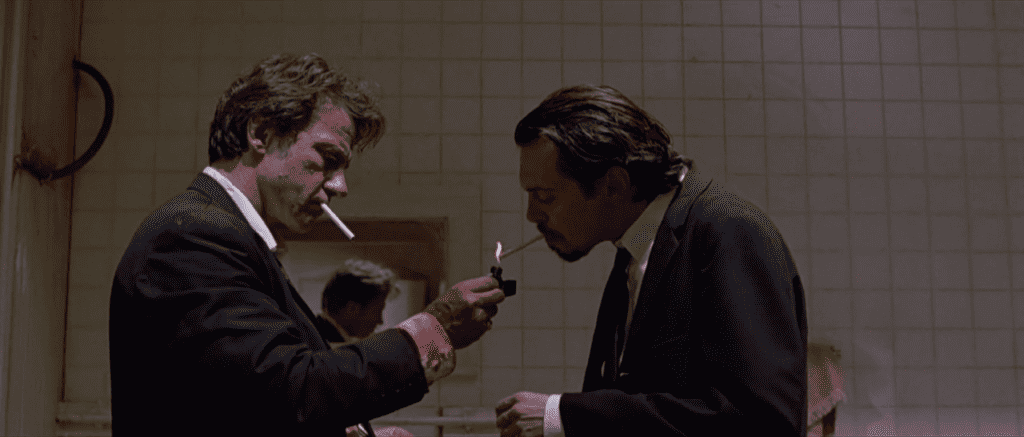
At the beginning of Reservoir Dogs, we are introduced to the unnamed characters, and we can immediately see that something is off. Tarantino spends way too much time on small talk that doesn’t tell us anything about our (anti)heroes or has anything to do with the plot.
For the first five minutes, “the dogs” talk about the meaning of Like a Virgin and True Blue (Madonna’s songs), then Mr.White and Joe argue about some old address book, and then, for some reason, they all have a deep philosophical discussion about whether one should or shouldn’t tip the waitresses.
After ten minutes of meaningless chitchat and learning absolutely nothing about our characters (or why we should care about any of them), we hear Geroge Baker Selection’s Little Green Bag, and the movie finally starts.
The greatest mystery in Reservoir Dogs is Mr. White’s willingness to turn his back on his old friend and boss (Joe) to save a guy he met only a few weeks ago (Mr.Orange). No explanation is given as to why Mr.White is prepared to make such a sacrifice for a guy he barely knows.
Tarantino could’ve written a backstory with Mr.White and Mr.Orange doing some smaller jobs together before the events in Reservoir Dogs and developing a deeper bond. This way, we would’ve had a better understanding of why Mr.White is willing to put his life on the line to save Orange.
Also, by getting to know Mr.Orange and Mr.White better, we would’ve gotten to care more about their characters, and therefore, we would be more invested in the outcome. Of course, during all this time, White would never know that Orange is a cop.
But, instead, Tarantino wastes valuable time by having his characters arguing over petty stuff like their colorful nicknames, talking about a black waitress named Elois, and way too much time is spent on Mr. Orange’s fictional weed story.
We watch Orange rehearsing his story, then we see him telling the story to Joe and his son, and for some reason, Tarantino even filmed this event that we know never happened. He spends a whole 10 minutes on Orange’s story, while it could’ve been done in less than two minutes. It’s just a story about going to a bathroom and taking a leak for Christ’s sake!
The main issue I had with Reservoir Dogs is that I never got to know or care about any of the characters, and therefore, I wasn’t invested in the outcome. I couldn’t care less whether Orange lives or dies, whether Joe and his son would get caught or not, or what would happen to Pink, White, and Blonde.
That said, the acting in Reservoir Dogs is superb. Harvey Keitel (White), Tim Roth (Orange), and Steve Buscemi (Pink) all gave excellent performances, and Michael Madsen was just born to play Mr.Blonde; I can’t imagine any other actor in that role.
2. Pulp Fiction (1994)
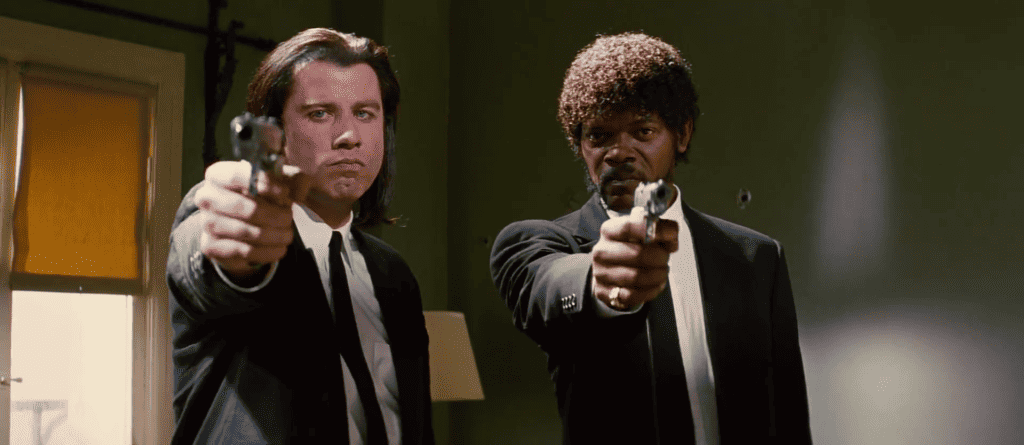
I don’t have a favorite Tarantino film, but if I did, it would be Pulp Fiction. Butch (Bruce Willis) trying to get his watch back, and Vincent Vega (John Travolta) trying to revive Mia Wallace (Uma Thurman) after she snorts heroin are my favorite Tarantino moments. But, I also have many issues with the movie.
The first problem I have is the dialogue. The way Tarantino writes, it sometimes seems that the characters just don’t know what they are talking about. For example, before they enter the building and meet Brett, Jules and Vincent have this exchange:
Jules: We should have shotguns for this kind of deal.
Vincent: How many up there?
Jules: Three or four.
Vincent: That’s counting our guy?
Jules: Not sure.
Vincent: So that means that it could be up to five guys up there?
Jules: It’s possible.
Vincent: We should have f**kin’ shotguns.
Jules and Vincent are supposed to be veterans, so there is no way they would think that shotguns would be appropriate for the job. Firstly, they are supposed to kill a bunch of people in a building full of residents, so the best weapons for the job would probably be automatic pistols with silencers. A shotgun would have made sure that everyone in the building (and probably the neighboring buildings) hears the shots.
Secondly, Jules and Vincent’s biggest advantage is Brett and his friends thinking that they still have a chance to get out of this alive, and so they keep their guards down. Shotguns would have likely alerted Brett and his crew that they are doomed and they would have started reaching for weapons.
And thirdly, it would be difficult for Jules and Vincent to conceal the shotguns while they are in the building. If someone saw them, they would have immediately called the police. The only more inappropriate weapon that they could’ve used is a bazooka.
The abysmal writing continues with Jules and Vincent finally arriving before the apartment where they are supposed to meet Brett, so they can get the briefcase containing Aladdin’s Lamp (I guess), and this dialogue follows:
Jules: This is the door?
Vincent: Yeah, it is.
Jules: What time you got?
Vincent: 7:22 in the AM.
Jules: No, ain’t quite time yet. Let’s hang back.
Then, for some reason, they stand in front of the door like morons waiting for the time to be exactly 7:25. Why Jules? If you kill Brett and his crew three minutes earlier, they might think that you’re not professional enough?
The next scene with Jules yelling at Brett is supposed to be one of the most legendary scenes in film history, but this is how I hear it in my mind every time I see it:
Jules: Describe what Marcellus Wallace looks like!
Vincent: Jules, there is no point in yelling life lessons at a guy you’re about to kill. It’s not like he’s going to be alive to implement them. Now, you’ve already killed his buddy without using a silencer, and that means that the police will be here any second. Please kill the guy so we can get out of here.
Jules: Hell no! (Turns to Brett) Describe what Marcellus Wallace looks like! Did you hear that neighbors!? When the police ask you “Did you hear anything before or after the shooting?” WE ARE ASSOCIATES OF MARCELLUS WALLAAAAACE!!!
Vincent: Excellent Jules! Now everyone in the building knows that our boss is involved! Can you NOW finally shoot the guy so we can get lost before the cops show up?!
Jules: Hell no motherf@cker! Do you know who’s writing the script for this movie?! Quentin Tarantino! Tarantino will make sure that no one in the building hears anything, that the cops are practically non-existent, and that we face no real obstacles whatsoever. I get to yell my ass off for no reason, shoot people without a silencer, take my time, and nothing will happen to me! As a matter of fact, you know what? I bet that I got enough time to recite half the Bible to this motherf@cker. You see Brett, there is this passage I got memorized…
A story shouldn’t have unnecessary characters, but that’s exactly what Esmeralda Villalobos (the female cab driver) is. This character is in the movie for the sole purpose for us to find out that Butch has killed his opponent in the ring and that he feels nothing about it. We could’ve easily found out this information when Butch talks on the phone with his pal, Scotty, or later when he talks to his girlfriend, Fabienne, but hey, why make things simple when they can be a lot more complicated?
Another character Tarantino spends way too much time on is Fabienne—Butch’s girlfriend. When Butch arrives at the apartment after the fight, we see them talking about the difference between tummies and pot bellies, practicing Spanish, discussing what they’re going to have for breakfast and other meaningless conversations that have nothing to do with the plot or character development. Tarantino spends insane amounts of time on “everyday talk.”
After ten whole minutes of chitchat, Butch finally notices that his watch is missing. I guess we should be grateful that they never got to order that blueberry pie because I’m sure that Tarantino would’ve subjugated us to Butch and Fabienne eating it for another ten minutes.
All in all, Pulp Fiction is a 2-hour and 40-minute movie, that should have been just a two-hour movie. Way too much time is spent philosophizing about foot massages or talking about burgers and five-dollar shakes. Nothing interesting happens for almost an hour. Then, somewhere at the 54-minute mark, Mia snorts the heroin, and finally, the film gets exciting.
3. Jackie Brown (1997)
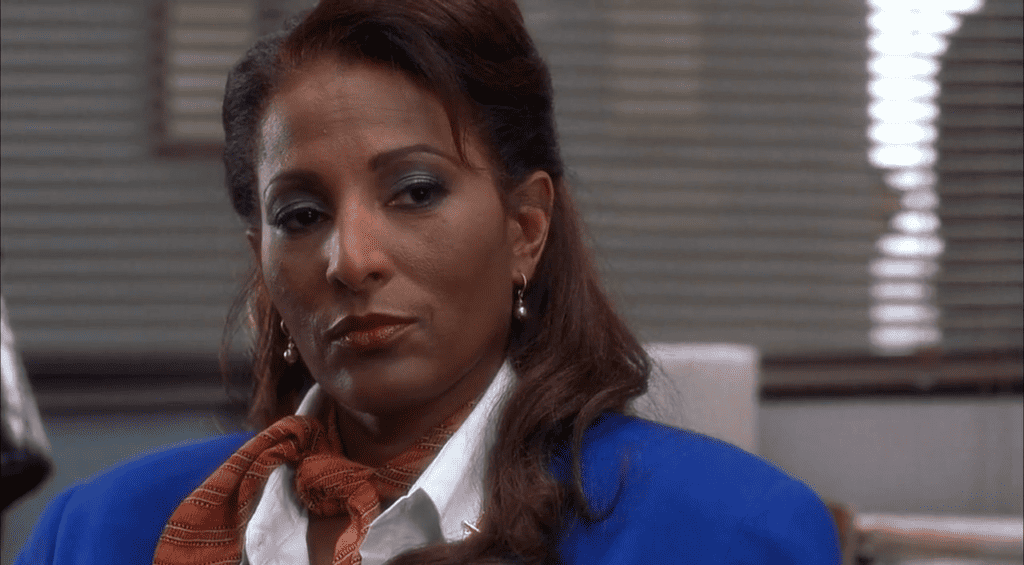
Unlike Reservoir Dogs and Pulp Fiction, Jackie Brown is not considered to be one of the most important movies of all time, so I’m not going to spend much time on it. But, I will say that Jackie Brown has two major improvements compared to Tarantino’s first two films:
First, the dialogue is better. The characters don’t talk endlessly about tipping the Maccdonals waitresses or Big Kahuna Burgers and the metric system; Almost everything said in the film has something to do with the plot or tells us something about the characters.
And two, it has a protagonist I actually cared about. By showing her vulnerable side, Jackie Brown (Pam Grier) made me sympathize and root for her which cannot be said about Tarantino’s previous films where I couldn’t care less if anyone lived or died.
The script is more intelligent than Reservoir Dogs or Pulp Fiction; Jackie has to develop an incredibly smart plan to double-cross her boss (Samuel L. Jackson), while at the same time deceiving the two detectives who are on her back. It was interesting to see how she is going to pull it off.
That said, Jackie Brown is not nearly as talked-about as Pulp Fiction or Reservoir Dogs, and there is a good reason for that. The movie itself is a lot less ambitious than the previous films, and Tarantino doesn’t try to break any new ground here. It’s simply an homage to the blaxploitation films of the ’70s which Tarantino grew up with. It’s not bad, but it’s not extraordinary either.
Part II: The 2000’s
I’ve already mentioned that the ’90s was the best Tarantino era, and if Jackie Brown was his last movie, this article wouldn’t have been written. But, in the next decade, the quality of his films dropped significantly and I consider the movies that he released during the 00s to be some of the most overrated in cinema history. These next films are the main reason this article exists.
4. Kill Bill, Volume I (2003)
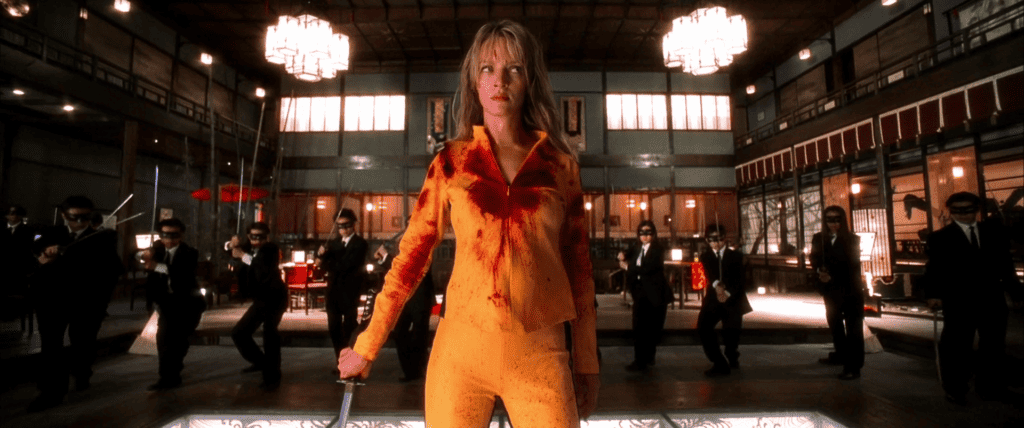
Initially, Kill Bill was supposed to be a single-volume 4-hour movie, but due to studio interference, it was released in two parts: Part 1 was released in 2003 and Part 2 in 2004.
The film begins with the protagonist, Beatrix Kiddo ( also known as “The Bride” played by Uma Thurman), getting killed (or so it appears) by unknown assassins, and with us hearing the male voice of her executor.
We learn later that the assassins are a group called “Deadly Viper Assassination Squad,” that Beatrix was part of the squad, and that she got killed because she tried to leave her old life behind. The male voice we hear at the beginning belonged to Bill—the leader of the squad.
The “Viper Squad” are supposed to be the most elite and dangerous assassins in the world, and yet, they somehow manage to kill everyone in the church… except their main target.
When “the Squad” finds out that “The Bride” survived, they send Elle (Daryn Hannah) to infiltrate the hospital and give Beatrix a lethal injection while she is in a comma. Bill calls Elle at the last minute and tells her to abort the mission because killing Beatrix while she’s sleeping would be “beneath them.”
So, they had no problem killing her while she was pregnant and unarmed, but because Tarantino didn’t know how to save his protagonist, Bill conveniently grows a sense of honor and lets “The Bride” live?! We are only at the beginning of the movie and already nothing makes sense.
After four years, The Bride awakens from the coma and is somehow in shape to kill two grown men with her bare hands without getting noticed by anyone at the hospital. She then goes to Japan to fight the Yakuza who—in this fictional world—were never told that firearms exist. They also wear these stupid eye-masks for some reason.
5. Kill Bill, Volume II (2004)
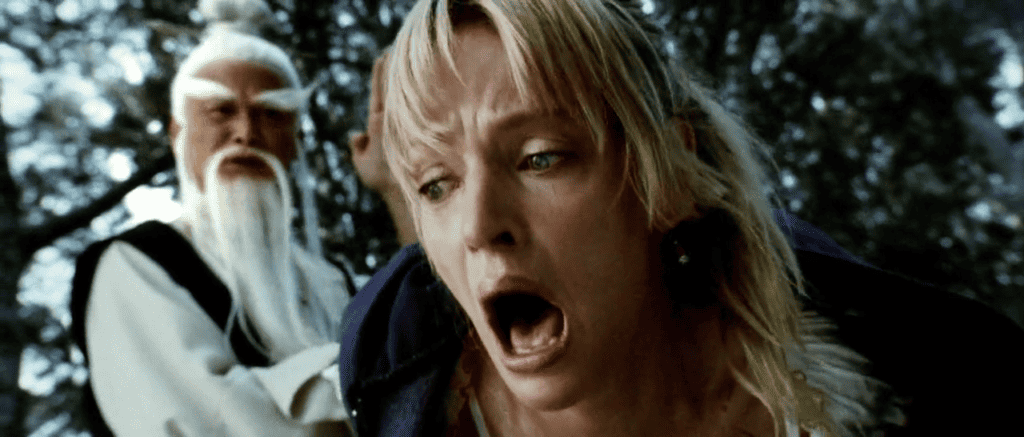
The writing in Part Two is even more ridiculous.
After Beatrix is shot by Budd (Michael Madsen) and buried alive, she goes Super-Saiyan, Dragon Ball Z-style, digs her way through tons of dirt, and the very next morning she is in perfect condition to fight Elle.
It seems that Tarantino has completely forgotten that Beatrix is supposed to be wounded by a shotgun and that her wound would have gotten infected by then. But, because the plot needs to happen, her wound just heals itself like she is a T-1000.
Also, Elle gets angry that Beatrix got killed by Budd and she regrets that she never got a chance to have a one-on-one swordfight with her?! Has Tarantino forgotten that this is the same woman who tried to kill Beatrix in part one with a lethal injection while she was in a coma and that she was fuming when she was stopped by Bill? And now we are supposed to believe that she always wanted a Samurai-style match with “The Bride”?
There is not much sense to be found in the Kill Bill movies. It seems that Tarantino just wanted to make a very violent movie without much thought for the plot, character development, or making sense in general.
6. Death Proof (2007)
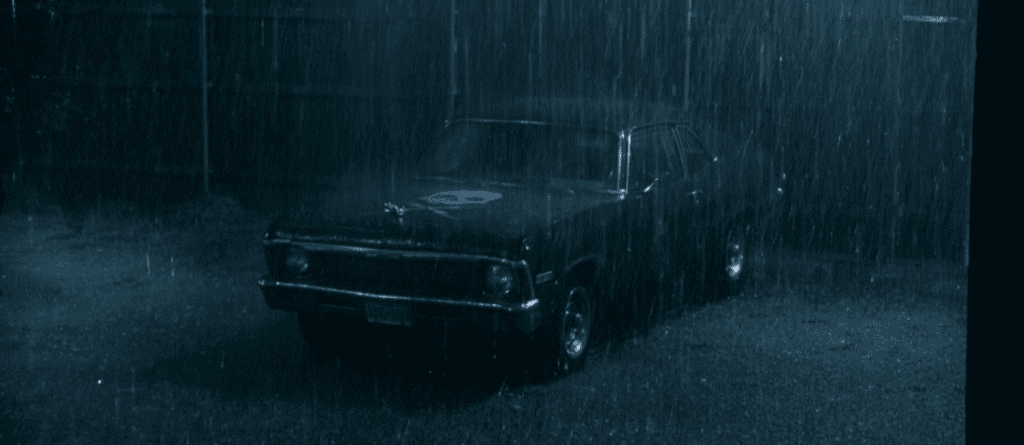
Death Proof has similar problems as Tarantino’s first movie, Reservoir Dogs, but this time, they are even more emphasized.
The movie starts, we are introduced to the three female characters, and, like “the Reservoir Dogs,” they just talk about random stuff that has nothing to do with the plot. But, unlike “the Reservoir Dogs” who spent 10 minutes talking about irrelevant stuff like Madonna songs and tipping, the three girls in Death Proof talk about irrelevant stuff for almost 40 minutes… and it was so boring I can’t even remember what they were talking about.
I guess the original idea was for Tarantino to have us fall in love with the girls during the first half of the movie and hate Stuntman Mike (Kurt Russell) for killing them so that we would look forward to his downfall in the second half.
But, I would argue that Tarantino fails here because the first three girls spend all of their screen time getting themselves drunk, calling each other “bad b*tches,” getting men to buy them drinks and giving them false hope, and just being unlikable in general. I wouldn’t say I hated them, but they were not exactly missed when Stuntman Mike killed them either.
The second group of girls was no better. Just like the first girls, they waste almost all of their screen time talking about their sex life and other plot-unrelated issues, and just trying to impress us with how “badass” they are. Character-wise, they are written almost exactly like the first three girls.
But this time, there’s an exemption. The second group actually has a likable character—Lee Montgomery (played by Mary Elizabeth Winstead). If Tarantino wanted us to hate Stuntman Mike with a passion, he should have had Mike kill Lee in the first half of the movie.
It was harder for me to care for the other girls. For example, it’s difficult to empathize with Zoë Bell’s character (who plays herself in the movie) because even though she is the one in greatest danger, it was her stupid idea to get on top of the hood in the first place. Since she already enjoys doing dangerous things, it seems that Mike is just giving her more of what she already wants.
Just like with Reservoir Dogs, I was uninvested in the film’s outcome. The protagonists and the victims were too unlikeable for me to care for them, and as a result, I didn’t particularly care to see Stuntman Mike getting his ass kicked. At least “the Reservoir Dogs” were a bit more interesting to watch.
That said, I do have to say that the stuntwork in Death Proof was very impressive. Although I didn’t care for her character much (and that’s 100% Tarantino’s fault), actress/stuntwoman Zoë Bell did an amazing job!
7. Inglourious Basterds (2009)
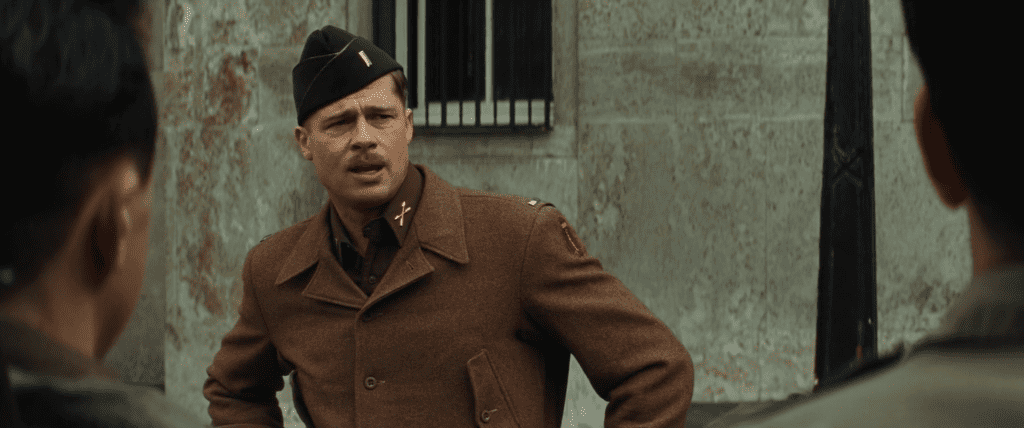
If someone asks me “What is the most overrated movie ever made?”, I would say without hesitation—it’s 2009’s Inglourious Basterds. This movie is such a trainwreck—even by Tarantino’s standards—that I believe it deserves its own article.
Initially, I started to write about the movie here, but there was so much wrong with the film, that it became a 1.400-word mega-post. So, to do it justice, I published it as a separate article and you can read it by clicking here.
Part III: The 2010’s
8. Django Unchained (2012)
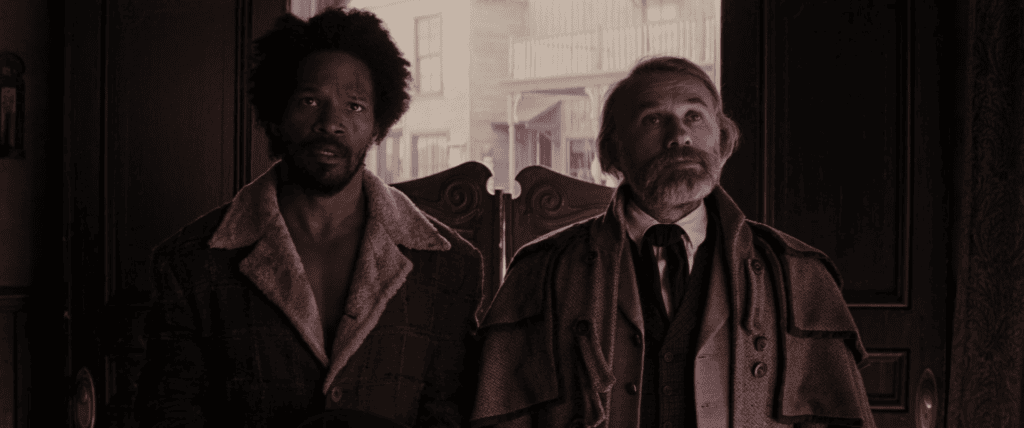
So, when Tarantino makes a WWII movie, he uses western music for the film, but now that he makes an actual western, he uses… hip-hop? Nevermind…
Just like the previous film, Inglourious Basterds, the best thing about Django Unchained is Christoph Waltz’s performance. This time, the two main characters, Django Freeman (Jamie Foxx) and Dr.King Shultz (Christoph Waltz) are better written than “the bastards,” and I was actually invested in the story. I also liked the Franco Nero cameo.
But, I found it implausible that Dr.Shultz would go so far as to risk his own life to save Broomhilda and reunite her with Django. In the movie, Dr.Shultz takes a great risk to save Broomhilda because… Broomhilda (the name) is an important character in a German legend?! Also, as a German, he feels obliged to do so because he realizes that Django is a real-life Siegfried (the character who saves Broomhilda in the legend)?!
I’m sorry, but Shultz needs a much better reason than this. Maybe Tarantino could have had Django save Dr.Shultz’s life during their bounty-hunting days, have Django and Shultz develop a deeper bond as a result, and then, Dr.Shultz would offer to help Django get Broomhilda back, as a way to return the favor.
I also find it inconsistent that Dr.Shultz is a calm and calculated character throughout the entire film, but in the end, he loses his cool over a handshake. Really?! Tarantino couldn’t have written a better reason for Shultz’s outburst? There are tons of other scenarios as to how Shultz and Candie (Leonardo DiCaprio) could have come into conflict, but in the end, Tarantino decided to go with something as petty as a handshake?!
And, of course, we have the typical over-the-top Tarantino violence. Seriously, what’s with the exploding bullets? The movie is supposed to take place in 1858, remember? Revolvers are not hand-cannons.
9. The Hateful Eight (2015)
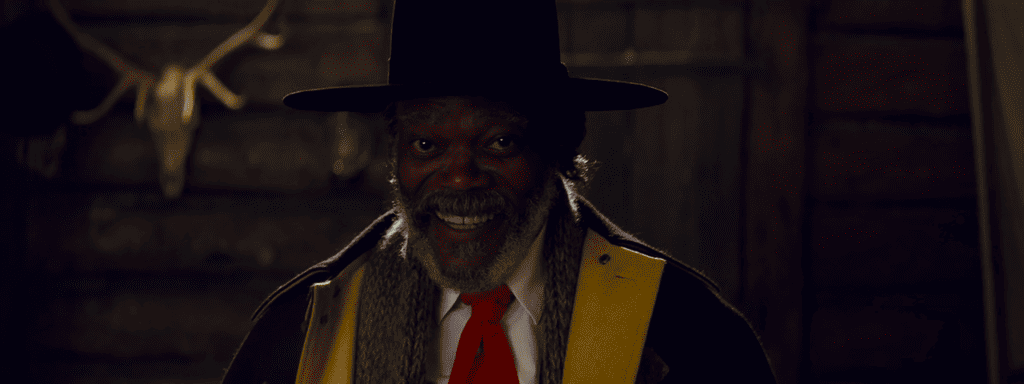
Talking… the Lincoln letter… more talking… Minnie’s Haberdashery… some more talking… the poisoned coffee… even more talking… Kurt Russell unknowingly destroys an antique guitar… much more talking… Major Warren Tells a story about blankets… insane amounts of talking… Minnie has a fat ass, and she can speak French… enough talking to make you want to die… Major Warren says adios to his huevos… did I mention that there is a lot of talking in this movie?
Tarantino is infamous for writing characters who say with 100 words, that which can be said with only 10 words, but this movie takes it to a whole nother level. The Hateful Eight is a 2-hour and 45 minutes movie that should have been just a 2-hour movie.
By the time I finished it, I felt like I’d watched a whole mini-series. Now, I’m not saying that all of the dialogue is bad; There were some excellent scenes in The Hateful Eight. But, seriously, there is so much clutter in this movie, it just spoils the fun.
This time, Tarantino made the right decision by hiring legendary composer Ennio Morricone to compose the score for the movie. Finally, we have western music in a western film, and no hip hop (thank God).
This time Christoph Waltz is not here to grace us with his presence, but actress Jennifer Jason Leigh (Daisy Domergue) steps into the spotlight and steals the show with her acting skills. The other actors also did an excellent job with the material given to them, but I think that it was a mistake to cast Michael Madsen as Joe Gage.
Don’t get me wrong, I love seeing the man act. But, part of the film’s mystery is the uncertainty of whether the other occupants in Minnie’s Haberdashery are just regular civilians or part of Daisy’s gang… and everyone knows that Michael Madsen always plays the bad guy. It’s a dead giveaway.
All in all, The Hateful Eight has a great cast, a great musical score, and great characters, but Tarantino just ruins it all by drowning everything in too much unnecessary dialogue, and the result is a movie that just bores you to tears. Like I said earlier, it would have been much better if The Hateful Eight was just a 2-hour movie.
10. Once Upon a Time in Hollywood (2019)
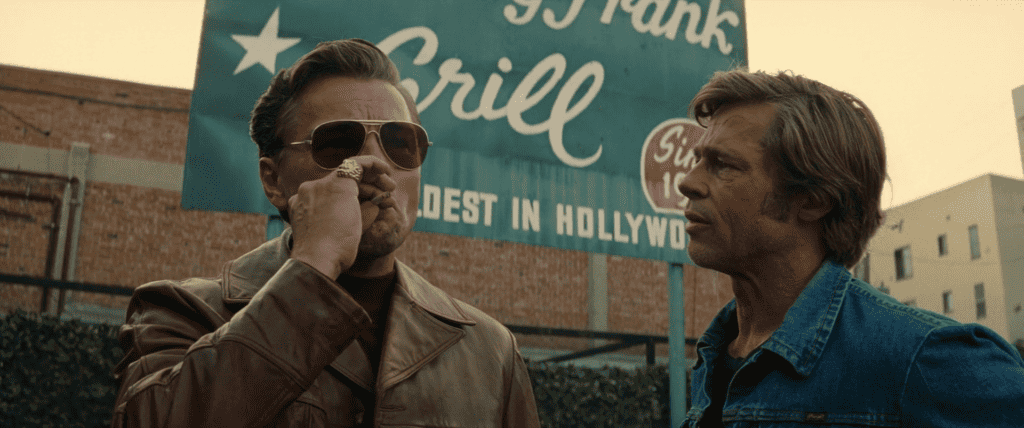
I have a theory: Tarantino’s audience just loves the violence, and because they are so distracted by it, they cannot see how flawed his movies actually are.
Once Upon a Time in Hollywood is the first movie that Tarantino has made that’s not drenched in blood and gore, and therefore it provides an excellent opportunity to analyze Tarantino’s writing abilities.
This time, there are no exploding bullets, no ear-slashing, and no Samuel L. Jackson yelling “mother@ucker” to distract us, and so, Tarantino’s weaknesses as a writer and director become more apparent. Of course, we have some violence at the very end (this is a Tarantino movie, after all), but still, I have to applaud Tarantino for trying something new.
The movie follows the same formula as Inglourious Basterds. They are both alternative history films, but while Inglourious Basters is a revenge fantasy against the Nazis, Once Upon a Time in Hollywood is a revenge fantasy against the Manson cult.
I have a problem figuring out what genre this movie is supposed to be. The Wikipedia page describes it as a comedy-drama film, but I have two problems with this: it’s not dramatic enough to be a drama, and it’s not funny enough to be a comedy.
We are introduced to the two main characters: Rick Dalton (Leonardo DiCaprio) and Cliff Booth (Brad Pitt), and again, Tarantino wastes time by showing them going through their mundane daily routines: Rick practicing lines for his new movie and making shakes, and Cliff making dinner and playing with his dog. I never cared for either of them.
Rick is shown crying and complaining that his Hollywood career as a leading man has come to an end, but the way he is presented to us infers that we should be laughing at him and his troubles, rather than with him.
Cliff Booth has much bigger problems than Rick because while Rick would still have a Hollywood carrier (only not as a leading man) if he fails, Cliff would lose everything. Rick is the only person in Hollywood who is willing to give him a job, but no one else is willing to work with him because everybody thinks that he killed his wife.
The movie could work well as a drama if we saw Cliff as a vulnerable man, concerned about his future, but in the movie, he is portrayed as this “too cool for school” kind of guy, who doesn’t let any problems get to him. If the character himself doesn’t care about his own problems, it’s very difficult for us, the audience, to care.
So, that’s for the drama part. Now, for the comedy part, can someone please tell me what is supposed to be funny in this movie? I’ve watched it three times and didn’t laugh once. I can see that Cliff’s “don’t cry in front of Mexicans” line was an attempt at humor, but apart from that, I can’t tell what was supposed to make me laugh. Tarantino sure has an unfunny way of showing his sense of humor.
A flashback is supposed to reveal important information to the audience that will be relevant later in the film.
For example, in Pulp Fiction, we had a flashback for the gold watch with Captain Koons (Christopher Walken). This flashback is relevant to the plot because it tells us how important the watch is for Butch (Bruce Willis). Without the flashback, the audience would be confused as to why Butch would risk his own life to get a simple wristwatch back.
But in “Hollywood,” Tarantino has a ten-minute flashback where Cliff fights with Bruce Lee, kicks his ass, and this is completely irrelevant for the rest of the movie. It doesn’t tell us anything new about Cliff’s character. We already knew that Cliff is unemployable as far as Hollywood is concerned and that he is supposed to be the coolest dude in all of California. Tarantino made damn sure that we get that last part.
The only thing Tarantino tells us with this flashback is “Hey guys! Just in case you’ve missed the part where I’m trying to shove the fact that Cliff is very cool down your throat, here is him beating Bruce Lee with ease. How cool is that, ha?!”
Remember earlier when we talked about Pulp Fiction and I said that a story shouldn’t have unnecessary characters and I mentioned Esmeralda Villalobos as an example? Well, take Esmeralda, but instead of only five minutes, give her a whole half-hour of screen time and you’ll have Sharon Tate (Margot Robbie).
Seriously, why is Sharon in this film? We see her walking into a theater and seeing her own movie, practicing Jeet Kune Do with Bruce Lee, and having dinner at a restaurant, but she never gets to meet either of the main characters, and her presence is completely irrelevant to the plot (I just remembered that the movie doesn’t actually have a plot to begin with). The entire movie seems like one expensive excuse for Tarantino to see Margot Robbie’s feet.
Part IV: Conclusion
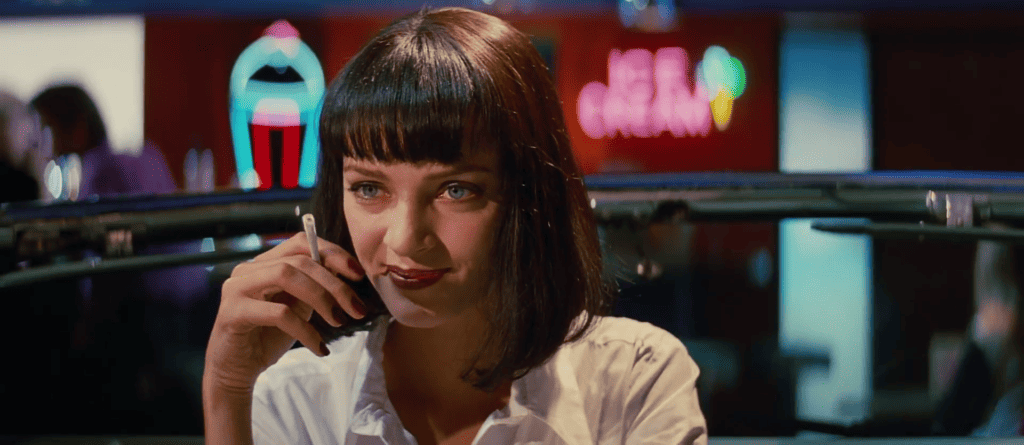
Dialogue
A normal director would spend only a small portion of screen time on small talk, but Tarantino makes his characters ramble a lot more than necessary, and often about things that have nothing to do with the plot.
Whether it’s the “Reservoir Dogs” talking about Like A Virgin and tipping, Jules and Vincent going on and on about hamburgers and foot massages, or Hattori Hanzō and his assistant almost killing each other over who will serve the tea, Tarantino sure likes to spend abysmal amounts of time on meaningless chit-chat, and for some reason, people like it. Perhaps the most obvious example of this is The Hateful Eight. That movie was ruined for me solely because of the excessive dialogue.
Violence
I don’t mind if there’s violence in the movie, but I do mind if the violence is the movie. With films like A Clockwork Orange, Goodfellas, Casino, and Braveheart, the director wants to tell a great story, and It just so happens that the story requires some violence to be told effectively.
Tarantino, on the other hand, makes violence the front and center of his films, and the story is just there to fill the void (and it doesn’t even have to make sense). This is especially true for his 2000s movies.
Inconsistency
There are tons of inconsistencies in almost all of Tarantino’s movies, but it seems that he always gets away with it.
Bill has no problem killing The Bride while she’s unarmed and rehearsing for her wedding, but he wouldn’t kill her while she’s in a coma because it would be… “beneath him?!”
Elle is angry for being denied an honorable sword match with Beatrix, but has no problem killing her while she’s unconscious?!
Hans Landa shows his contempt for traitors of the Third Reich by killing Bridget with his bare hands, but has no problem becoming one only minutes after this?!
Dr.Shultz is the calmest character in Django Unchained, but goes berserk over a handshake?!
Other directors would have received much more criticism for such writing, but for some reason, Tarantino gets a pass.
So, there you have it. I hope that you enjoyed the article, and If you are a Tarantino fan, I hope you didn’t take anything personally. So, go and get yourself some Royale with cheese and a foot massage, and have a great day!

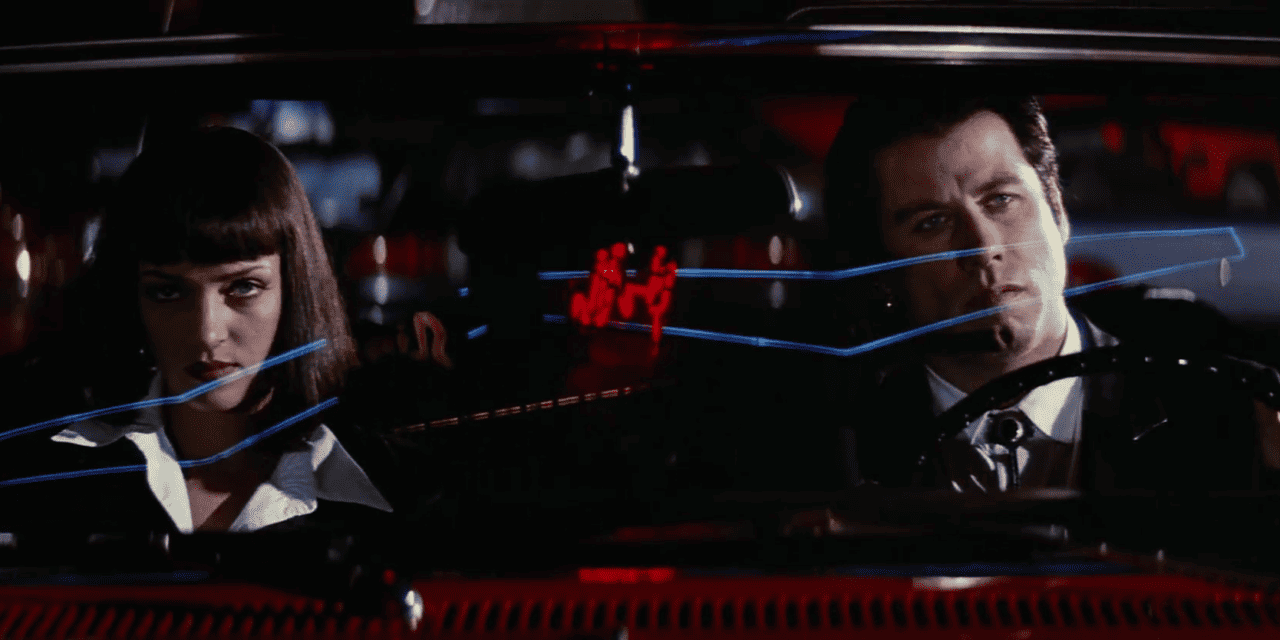
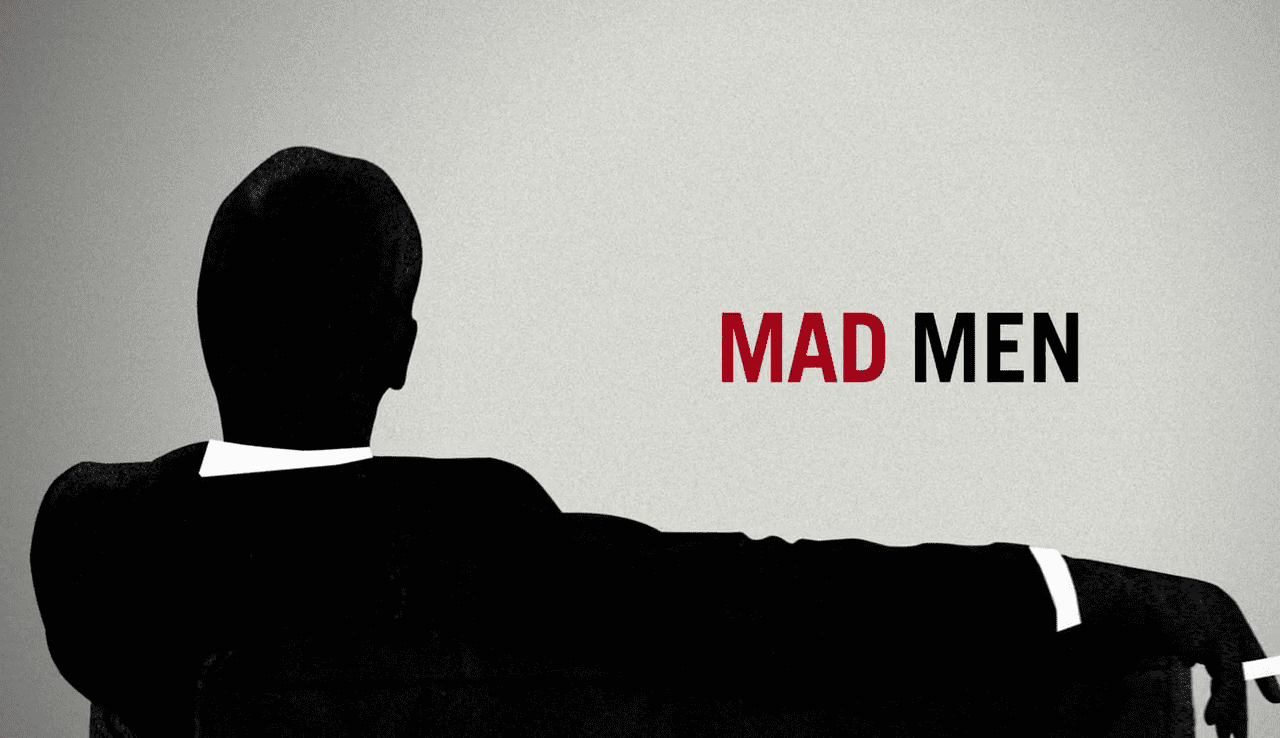
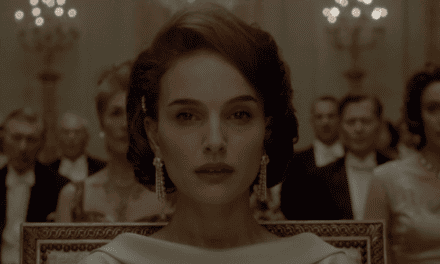
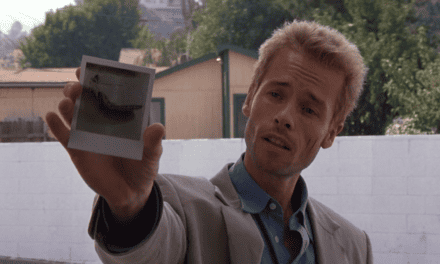
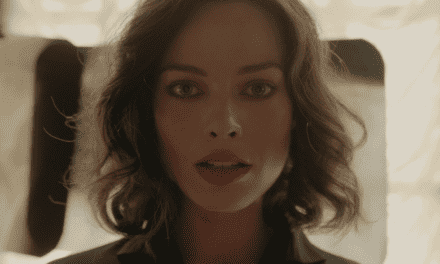
Recent Comments